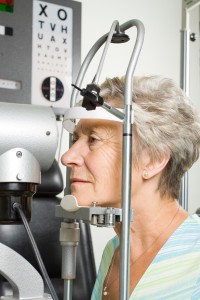 Most of us notice the little things that happen to our bodies as we age. From higher blood pressure to increased risk of illness and injury, even the things we used to take for granted may become more difficult as we age. So what about our eyes?
Most of us notice the little things that happen to our bodies as we age. From higher blood pressure to increased risk of illness and injury, even the things we used to take for granted may become more difficult as we age. So what about our eyes?
As we age, our eyes undergo changes as well. Even if you are healthy, you may find yourself noticing small changes in your vision such as needing to move the paper back a bit further to see it or feeling like there needs to be more light in an area which always seemed ok to you before. As you reach your 40’s and 50’s these and other changes may occur to your vision. So what is happening?
Our eyes, once flexible and young, are losing that flexibility and beginning to focus a bit more slowly. This is called presbyopia. Not uncommon at all in aging eyes, this condition may be both a signal of something worse or may just be your eyes aging. Simply to resolve, those suffering from presbyopia may benefit from glasses, contacts or even laser surgery.
Another unfortunately all too common condition that many encounter as they age is age-related macular degeneration. Age-related macular degeneration or AMD, is a disease which affects the macula of the eye, the part of the retina which is responsible for our central vision. Those suffering from this condition may see distorted or wavy lines or even a blind or empty spot in their vision. While macular degeneration may not be completely curable, it can often be delayed or the symptoms reduced if treated early.
Further complications with our eyes often appear when we have underlying medical conditions as well such as diabetes. Diabetics face a number of challenges relating to their health as they age. Out of control diabetes leads to circulatory problems, problems with organs and can cause diabetic retinopathy in your eyes. Not necessarily age-related, this condition develops slowly over time and can be halted if blood sugars are kept under control.
There are many other conditions which may occur as we age however, neither genetics nor health are sure proof that we may develop any of these conditions. The best way to protect our eyes as we age is by making sure that we have regular check-ups with our eye doctors. Live a healthy lifestyle, schedule regular visits with your optometrist or ophthalmologist and let them know any and all changes you may have noticed and any history of these conditions in your family.
Your eyesight is a gift. Be sure you do all you can to keep your eyes healthy by visiting your eye doctor. Note: if you notice significant changes in your vision, contact your optometrist right away.
